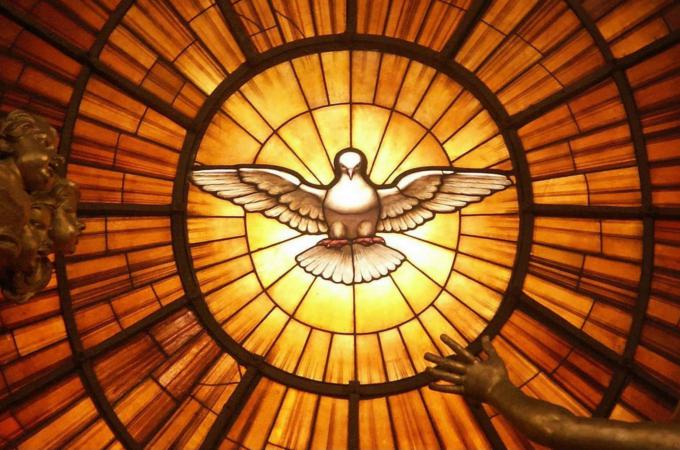When did Holy Spirit come?
Q. I have often wondered about the difference between the disciples receiving the Holy Spirit immediately after the Resurrection "on the evening of that first day of the week" (Jn 20:19-23) and the coming of the Holy Spirit upon them at Pentecost (Acts 2:1-4). Is it two different accounts of the same event, or did they receive the Holy Spirit in two different ways on two different occasions? (Vacherie, Louisiana)
A. In general, Scripture scholars read this as two different events, with the gift of the Holy Spirit being offered for two different purposes. In the first incident (Jn 20), the Spirit comes to the specific group of disciples gathered on the night of the first Easter Sunday; the Spirit confers on them the power to forgive sins.
In the second account (Acts 2), the Spirit descends forcefully on the whole community of believers, empowering them to preach the Gospel boldly, even though Jesus will no longer be physically present with them. (Note that this Pentecost event, following the Ascension, enables the disciples to be understood in many languages and that Pentecost is commonly regarded as the "birthday of the church.")
This interpretation seems to square best with John 7:37-39, which suggests that the Spirit will not be given in its fullness until Jesus has been glorified, and with Luke 24:49, where Jesus, immediately before the Ascension, instructs the disciples to "stay in the city until you are clothed with power from on high."
Q. Recently there was a tragic death. A woman died and left three children in their 20s. The priest in the small town where the woman lived and where her children had grown up was not at all sympathetic.
The family wanted to have the visitation in the church, which he finally allowed but made the funeral home remove the casket overnight. He decided to allow flowers in the church during the wake but would not permit them during the funeral Mass because it was during Lent. I am just sickened by this lack of compassion for the family. Not allowing flowers during the service is ridiculous. If that is a rule of the Catholic Church, it's a rule that should be broken by every priest. I want to hear your thoughts. (City of origin withheld)
A. Let's take your concerns one at a time. As to having the visitation in church, viewing hours are normally held in a funeral home. Churches are primarily places of worship, and some parishes simply cannot honor every request to accommodate a wake for several hours during an afternoon and evening.
In our parish, on a couple of occasions, we have had to turn down requests to host a wake due to events that were previously scheduled: Stations of the Cross, an evening Mass, a school concert.
With regard to removing the casket overnight, I can understand that, too. Funeral directors regularly do so in our church because we have a daily parish Mass in the early morning, which young school children often attend.
But on the part about flowers, I agree with you.
Technically, the priest you refer to is correct; the General Instruction of the Roman Missal (the "rule book" on liturgy) says in No. 305 that "during Lent it is forbidden for the altar to be decorated with flowers."
The only exceptions, it specifically notes, are Laetare Sunday, solemnities and feasts. But the Order of Christian Funerals says (in No. 38), "Fresh flowers, used in moderation, can enhance the setting of the funeral rites." So I say (and have done this) why not make a pastoral accommodation, especially for a grieving family? Flowers do speak of new life, which is what the funeral liturgy strives to convey.
- - -
Questions may be sent to Father Kenneth Doyle at askfatherdoyle@gmail.com and 40 Hopewell St. Albany, N.Y. 12208.
- Father Kenneth Doyle is a columnist for Catholic News Service



















